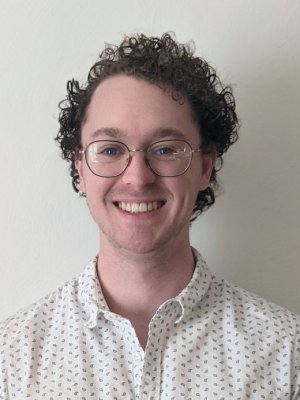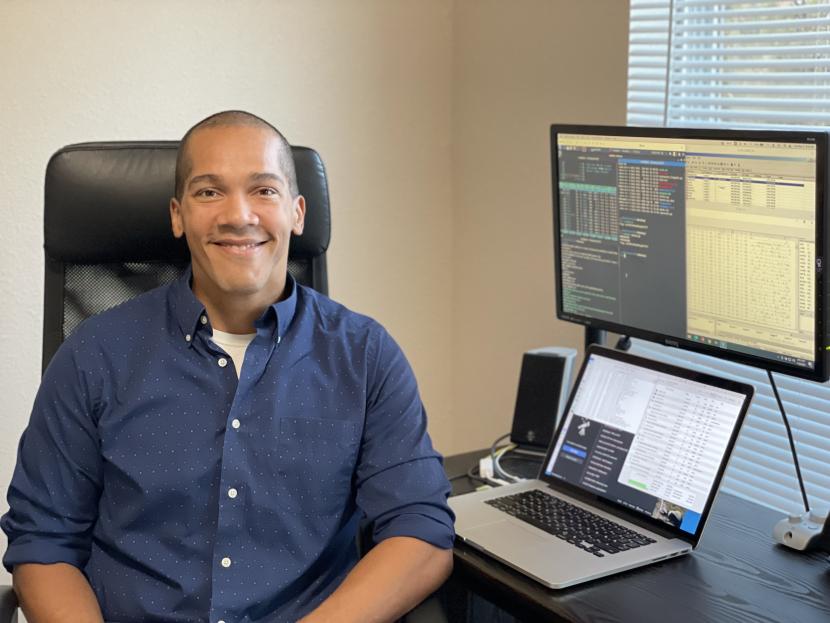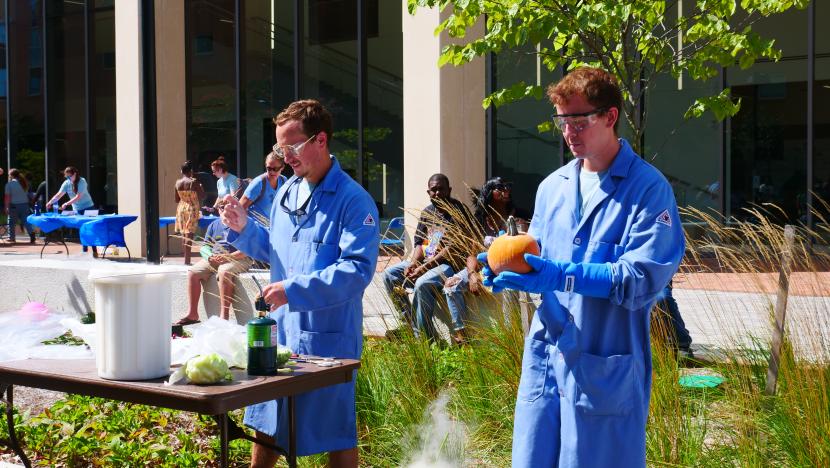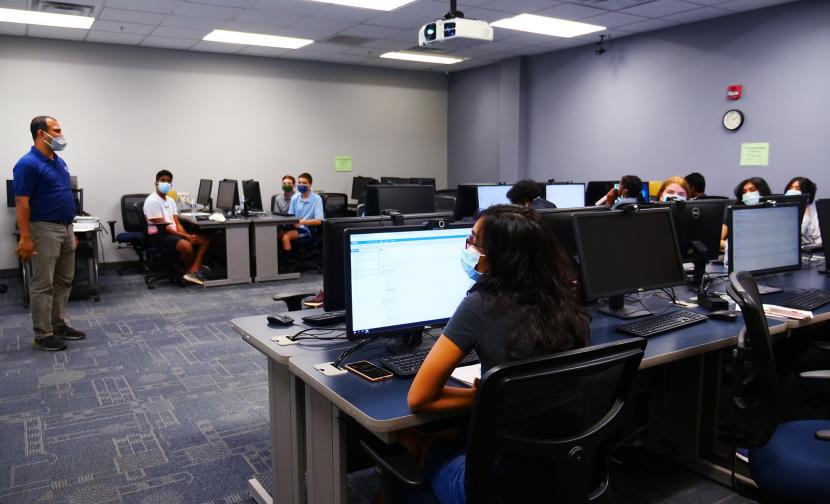Mitchell Kerver
Two ODU doctoral students in physics have been awarded the coveted 2021-2022 Jefferson Science Associates (JSA)/Jefferson Lab fellowship. Mitchell Kerver and Md Habib E Islam, together with seven other recipients from across the nation, will advance their studies and research at the U.S. Department of Energy's Thomas Jefferson National Accelerator Facility in Newport News.
Competition was fierce, but Kerver and Islam were chosen for the fellowship based on the quality of their research proposals, academic standing and references. Each of the fellowship recipients will continue their coursework while enhancing their academic experience with one-on-one interactions and participation with Jefferson Lab mentors and collaborating scientists.
Both Kerver and Islam are working on complex physics research projects, and since they can pursue research at Jefferson Lab, their curiosity can find its course. The facilities at Jefferson will allow both doctoral students to solve complex mathematical equations and unlock their potential. As part of the fellowship, they will present their findings at conferences in 2022.
"This is the main fellowship offered at Jefferson Lab for graduate students, and it's something I wanted to strive for ever since I was an undergraduate at Christopher Newport University," Kerver said. He is in his fifth year as a doctoral student studying experimental nuclear physics.
"I got really lucky that Dr. Charles Hyde is my advisor, because he's been in the field a long time, and he's really well-connected with the people relative to the research I'm interested in," said Kerver. "The particular physics process that I'm looking at is called Deep Virtual Compton Scattering, or DVCS, and Dr. Hyde is really well-known for being a pioneer within the experimental physics process." Kerver's research involves the internal structure of the proton and neutron.
"Mitchell Kerver is applying cutting-edge developments in computer science to a challenging computation problem at the heart of nuclear femtography," said Hyde, a professor of physics at ODU. "It is wonderful to work with Mitch, because of his interest and ability in understanding computational tools, high energy particle detectors and the quantum theory describing the nuclear femtography experiments at Jefferson Lab and the future Electron Ion Collider (to be built in New York)."
Nuclear femtography is a new field of research that aims to construct spatial images of the quarks and gluons that are the building blocks of the atomic nucleus and are responsible for over 97% of the mass of the visible matter of the universe.
Islam is currently a fourth-year doctoral student in ODU's physics department, advised by Raul Briceno, an assistant professor who encouraged him to apply for the JSA fellowship.
"It feels good to have this fellowship and to be able to do research at Jefferson Lab facilities is incredible," said Islam. "It is wonderful to have Professor Briceno as my advisor because he's an expert in his field," said Islam. "He knows the research that I'm working on with three-body dynamics and lattice quantum chromodynamics (QCD)."
"MD Habib has been leading efforts to study a previously inaccessible class of nuclear reactions which cannot be performed in modern-day experiments and would provide insight into the formation of the basic building blocks of matter," Briceno said. "He has already successfully finished and published a study on the topic and is currently carrying out two high-impact investigations, making him more than deserving of the JSA fellowship."
"My research is trying to understand three-body dynamics and lattice QCD and processes in involving three kaons," said Islam. "Jefferson Lab feels like home in the sense that I get to be around other scientists, who are just as curious about science as I am."
The Southern University Research Association Board of Trustees first established the fellowship program in 1989. The program, now supported by the JSA Initiatives Fund, contributes to each student's research assistant stipend. All fellowship recipients attend universities that are members of SURA, a consortium of more than 60 leading research universities. Since the program's inception, 244 fellowships have been awarded to students from 23 different SURA member universities. SURA built and operated Jefferson Lab, before becoming a partner of Jefferson Science Associates.
Related News Stories
ODU Cybersecurity Student Wins National Capture the Flag Competition
James Whittson bested more than 500 participants to win the National Institute of Standards and Technology challenge. (More)
First ‘Reign in Chemistry and Science Day’ Brings K-12 Students to ODU
Event showed off possibilities available at the new Chemistry Building, including planetarium shows and STEM activities. (More)
Norfolk High School Students Unlock Potential in Data Science Summer Camp
Professor Sampath Jayarathna led a 10-day intensive data science program for Norfolk high school students this summer. (More)







